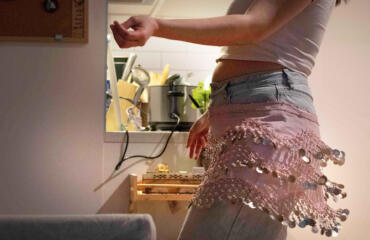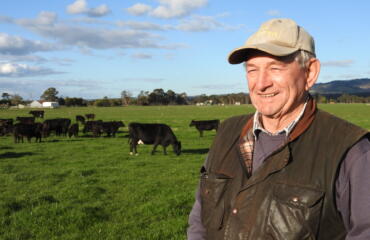At the end of another long day of shooting, the producers gathered the cast and crew together to discuss the future of Wakefield, an eight-part television series filmed in a former psychiatric hospital in Sydney.
It was March 20, and concerns about the coronavirus pandemic were spiralling. Precautions like hand-sanitiser were not enough to ensure safety, and the production was indefinitely postponed halfway through the shoot.
Jake Walker agreed with the decision. As a production grip, he is responsible for positioning cameras, and he understood the impossibility of social distancing on set. “It kind of feels like you’re breathing down everyone’s neck,” he says of the work.

“What happens if this happens again?” Walker wonders. “Especially if I want to start a family in the next five or 10 years.”
Short-term contracts are part and parcel of life in the creative industries, and so Walker, 23, is well accustomed to instability. He has never had a contract longer than 20 weeks and has often filled gaps between grip jobs with driving trucks and landscaping. But this time all the short term opportunities also vanished overnight.
He spent hours discussing his history and his options with Centrelink, only to be told he wasn’t eligible for Jobkeeper. Initially, businesses less than a year old such as the entity set up for Wakefield were left out of the employment subsidy scheme but later, the criteria were expanded and Walker was able to receive $1500 a fortnight.
Walker was relieved, but like many young people beginning their careers, the whole episode has prompted him to rethink his future. He knows his job will always mean short-term contracts. Research from the Grattan Institute in April estimated that a quarter of the workforce are likely to lose their jobs due to pandemic shutdowns, but that rises to 75 per cent for those working in the creative and performing arts.
“What happens if this happens again?” Walker wonders. “Especially if I want to start a family in the next five or 10 years.”
The film industry pleaded with the Federal Government to help save jobs and enable creative endeavours and in late June $250m was offered, including $50m to help finance local film productions shut down due to public health restrictions.
Walker lives in a suburban cul de sac in western Sydney with his mother, Danielle, who works in retail, and his stepfather, Aron, who also works in the screen industry, along with his five school-aged siblings. His parents stopped working for weeks during Sydney’s shutdown and it was stressful for a family of eight to be confined to a four-bedroom house.
For a few months, Jobkeeper provided financial relief, but with vehicle insurance, debt, and rent to worry about and the prospect of the payments being wound back, as they are now, Walker was stressed too. He applied for numerous jobs and expanded his skills, gaining his forklift licence in April to improve his employability.
“‘Sorry, we’d love to have you but …’,” he says of the responses he received.
There was finally relief in August. The TV shoot recommenced with all cast and crew tested for COVID-19 and with a “production bubble” set up to limit interactions outside of work.
Walker is happy to be back working, but he worries about an unpredictable post-pandemic job market. After years working as a fourth grip – the most junior position – Walker was appointed third grip just before Wakefield.
“I’ve only just cracked the surface,” he says. “There’s so much experience that I need.”
His mental and physical health has also caused concern. Early last year, he was lifting concrete while landscaping when he slipped two discs in his back. During his recovery, his mental health deteriorated and he says the “cloud” of depression has returned. He worries that “it’s all for nothing”.
He wonders about steadier jobs, perhaps retraining in air conditioner repair or carpentry, but he’d rather not change careers.
He loves film work, the way the crew turns into a family, and because he has the sense that he’s contributing to something bigger than himself.
“Gripping’s for me,” he says. “I was meant to be a grip and I’m gonna be one.”

This project is a result of a partnership between the Guardian Civic Journalism Trust and the Centre for Advancing Journalism at the University of Melbourne. Reporting contributed by: Alyssa Herr, Anthony Marsico, Ashleigh Barraclough, Connor Webster, Else Kennedy, Fia Walsh, Jordyn Beazley, Liam Petterson, Petra Stock, Sean Goodwin, Thomas Phillips and Wing Kuang. Visit the full interactive package co-published with Guardian Australia here.




